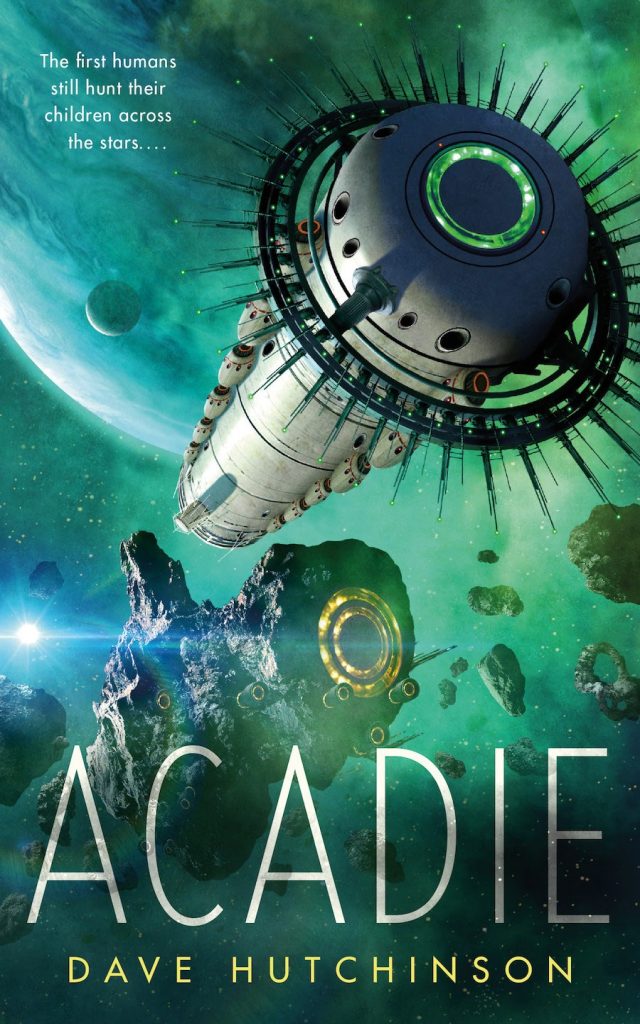
Writing about Dave Hutchinson’s work isn’t the easiest of tasks. As a novelist, he’s fond of reversals, unexpected twists and revelations, and moments in which the scope of a certain project is revealed to be something quite different from what I’d expected to be reading. I first picked up his work via a recommendation in Warren Ellis’s newsletter, Orbital Operations. The book in question, Europe in Autumn, began as a thriller set in a near-future Europe in which new nation-states declare sovereignty at an increasingly rapid pace. It’s since been followed by two other books, Europe at Midnight and Europe in Winter, which maintain that setting but heighten it–while still keeping all of the narrative permutations in line with the first book’s questions of nationality, borders, and the way that certain lines on a map can confer power.
Hutchinson’s short novel Acadie seems, on the surface, to be a very different beast. While the Europe books were set a few decades from now, this one’s set hundreds of years in the future; while those books inhabited an altered version of a familiar landscape, this one is set in deep space. But a closer look at Acadie suggests that Hutchinson hasn’t pulled an aesthetic 180 as much as he’s found an entirely different way to riff on some of the same themes of the Europe books: the malleability of human boundaries, the fallout from ideological clashes, and the shock that can emerge when someone is exposed to massive advances in technology.
There was a little of that last point in the later Europe books: moments in which a technological leap made by one of the factions in Hutchinson’s near-future history left one of the characters–or the reader–staggering back, gasping for (metaphorical) breath. Here, that’s squared, if not cubed: it opens with narrator Duke Faraday waking up to an alarm of some sort. He’s just turned 150, and lives in the depths of space as part of a technologically advanced society with a penchant for body modification. In his case, that’s fairly minor, save keeping him relatively young and preventing hangovers.
Over the course of the book, Duke recalls the circumstances that brought him to this point: his conflicts with the government back on Earth that quashed the work of a groundbreaking scientist, the leadership position he currently occupies, and the steps taken by this spacefaring civilization to avoid detection by Earth, even though abundant time has passed since they made their escape. It is, by all accounts, a technological utopia–though there are plenty on Earth who disagree, leading to a reckoning between two societies.
What Hutchinson is exploring, in both the Europe books and in Acadie, is an essential question about the way we perceive the societies in which we live. Whether their setting is in Europe or a vessel in a distant solar system, these are books that show how ideological warfare can look on both sides of a conflict. Some of the societies Hutchinson describes in these books are monstrous; others are deluded, or misguided, or simply out of their depth. What makes Hutchinson’s work so intriguing is how he navigates these concerns, and explores the ramifications of their collisions with one another.
***
Acadie
by Dave Hutchinson
Tor.com Books; 103 p.
Follow Vol. 1 Brooklyn on Twitter, Facebook, and sign up for our mailing list.
